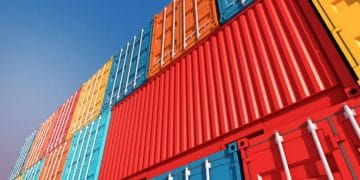supplychainreport — The United States’ recent shift in tariff policy has prompted significant responses from global trade partners, as policymakers and industries worldwide reassess their positions in light of new reciprocal tariff structures introduced by the current administration.
The U.S. government has indicated that while the tariff strategy may undergo adjustments based on feedback from businesses and international counterparts, it is expected to proceed with the overall policy direction. According to administration officials, the measures are designed to address longstanding trade imbalances and encourage fairer market access for American products.
In response, a number of countries have expressed interest in negotiating bilateral agreements aimed at improving terms of trade with the United States. Analysts note that several trade partners have begun offering concessions that could prove beneficial to U.S. exporters and manufacturers.
The White House has emphasized that prior to these policy shifts, tariff levels imposed by the U.S. were often minimal, resulting in limited leverage during trade discussions. The implementation of new reciprocal and Section 232 tariffs—temporarily paused for a 90-day review period ending July 8—has led many countries to seek constructive engagement.
Some economists have raised technical concerns regarding the methodology used to calculate the reciprocal tariffs, particularly the choice to base elasticity estimates on retail rather than import prices. According to critics, a revised calculation might have produced lower tariff rates. However, administration sources maintain that the policy aims not merely to adjust formulas but to create incentives for renegotiation and recalibration of trade relationships.
Observers have likened the strategy to corrective measures used in other fields—such as sports—where overcompensation is sometimes required to achieve balance. In this view, the heightened tariffs are seen as a temporary mechanism intended to realign trade practices.
Notably, the Executive Order underpinning the tariffs includes provisions designed to foster domestic production and incentivize foreign investment in the U.S. manufacturing sector. Section 3(f) specifies that the applied tariffs would only target non-U.S. content in imported goods, provided the product meets a 20% U.S.-origin threshold. This clause is intended to encourage international firms to source from or operate within the United States.
In addition, Section 4—often referred to as the “Modification Authority”—grants flexibility to adjust tariffs based on the responses of trading partners. This allows for both increased collaboration and enforcement, depending on whether the trading partner moves to resolve non-reciprocal arrangements or aligns with broader economic and security frameworks.
Some governments have opted for negotiations aimed at easing access for U.S. exports, potentially mitigating tariff-related impacts on their own industries. Meanwhile, the U.S. has stated its openness to discussions aimed at resolving outstanding trade issues.
Policymakers in developing countries are also monitoring the situation, aware of the broader implications for market competitiveness and export viability. Trade associations have emphasized the importance of timely action to safeguard exporters’ market share, particularly in industries that contribute significantly to employment and tax revenue.
Dr. Jesus Lim Arranza, chairman of the Federation of Philippine Industries, expressed concern that exporters in countries like the Philippines might face competitive disadvantages if adjustments are not made in a timely manner. He urged policymakers to act decisively in ensuring continued access to U.S. markets for local products.
While perspectives on the effectiveness of the U.S. strategy differ, the developments underscore how shifts in trade policy can influence global economic behavior. The process of negotiating reciprocal access and adjusting to new tariff regimes continues to evolve, with ongoing implications for cross-border trade and investment flows.
As discussions progress, analysts and industry leaders alike will be watching how nations adapt, respond, and shape new frameworks for trade cooperation in an increasingly interconnected economy.
#TradePolicy #TariffUpdates #GlobalTradeDynamics #SupplyChainNews #EconomicStrategy















